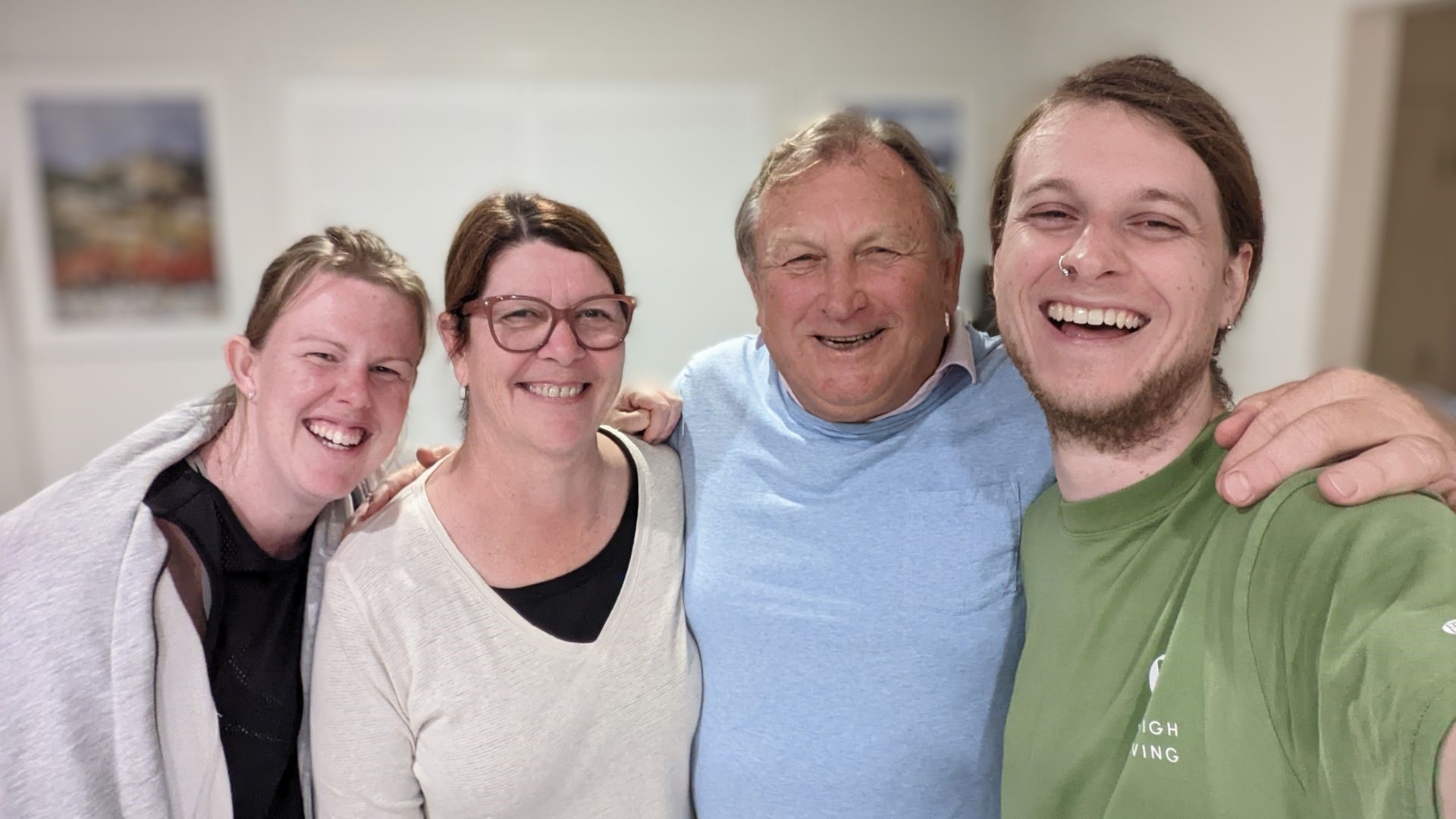
Living your ‘second life’ to the fullest: Rob’s heart story
The theme for this year’s Men’s Health Week is “Healthy Habits”, which is something 67-year-old Rob McCluskey has in spades.
With an active social life filled with activities including golf, pétanque and body surfing multiple times a week, Rob also leads a beach exercise class for seniors twice a week. From the outside he has a contagious energy and could be the poster boy for great healthy habits. But his journey has been more complex than that.
Rob says he’s typically been an active guy. “I used to play rugby as a prop and many other sports. I'm 130 kgs, but I’m a big unit. I’d get my health checks, and my GP would tell me to lose a bit of weight, but I always thought that’s just the way it is.”
I thought I was bulletproof, worrying about everyone else before myself.”
In Australia, one person is admitted to hospital with a heart attack every nine minutes, and when having a heart attack, every minute counts. The longer you wait, the more heart muscle dies. It’s why Rob might consider himself one of the lucky ones after he had a heart attack while preparing to move house in September 2015.
“I was selling some items and happened to be meeting up with a buyer who was collecting an antique chair. We got to chat a little bit longer than expected!” Thankfully, this buyer was an experienced nurse, and although his heart attack was difficult to remember, he now knows this good Samaritan was there to act immediately, taking care of him while Rob’s eldest son Mitchell called 000.
Forty minutes later, Rob was in Royal North Shore hospital, largely unaware of what had happened or the fact that he had just received a stent to help counteract a 98% blockage of his artery.
As it is for many who have experienced a heart event, it was a life-changing moment. It wasn’t until three weeks later, after moving to Port Macquarie, Rob started cardiac rehab and turned his focus on recovery.
I realised if I want to sort myself out, I’m going to have to take care of myself. I said, you’re on your second life already.”
Following a heart attack, it’s normal to be worried about your recovery and future, but anyone experiencing this now should know they are not alone, and many people work with their GP and other health professionals to make a full recovery, returning to their normal activities. Cardiac rehabilitation is an excellent way to help you recover from a heart attack, manage your risk factors and return to a full and active life – and this is where Rob focused his energy.
In the year that followed his heart event Rob was diligent in his recovery, religiously following his rehab plan and getting movement in every day. “The rehab process for me is about being a part of a team or a community in recovery. If by chance you do need to go through a cardiac rehab program, then make sure you follow all the advice and support provided by medical professionals,” says Rob. “Make it your job to be the star performer in getting through the various stages and aspects and work on getting your mindset back.” This was his first exposure to beautiful beachside exercise classes, and he even got involved in boxing!

On the twelve-month anniversary of his life-changing heart attack, Rob and his wife Lynne walked on the Great Wall of China, proud of how far he’d come. They took extended trips in both 2018 and 2019 and lived life to the fullest, having now visited 38 of 43 countries in Europe. But Rob knew all too well that sometimes your body has other plans, and by January 2020 he started to feel like something was off as he was suddenly unable to do some of the things, he was previously able to do.
I realised if I want to sort myself out, I’m going to have to take care of myself. I said, you’re on your second life already.”
Rob had learned the hard way that he should listen to his body, and after consulting with his medical team, an angiogram indicated he needed bypass surgery. In April 2020 Rob underwent bypass surgery, once again at Royal North Shore hospital. However, this time recovery wasn’t as straight forward.
Going straight into lockdown during the COVID-19 pandemic and with no rehab services available to him during this time, Rob leveraged his previous knowledge and experience in recovery to guide his rehab. Things like low intensity body weight exercises, using hand weights and small but impactful movement became a daily habit.
Three years later and Rob is still embodying all those healthy daily habits. He signed up this year to take part in the Heart Foundation’s Beating Hearts Bootcamp challenge, raising the most of any participant in the challenge – more than $2,700 from 75 of his supporters.
A true man of the people, Rob even took the challenge to his community, providing daily videos to keep others motivated and will be incorporating some of the exercises into the senior's beach exercise classes he leads two days a week – where he’s the instructor.
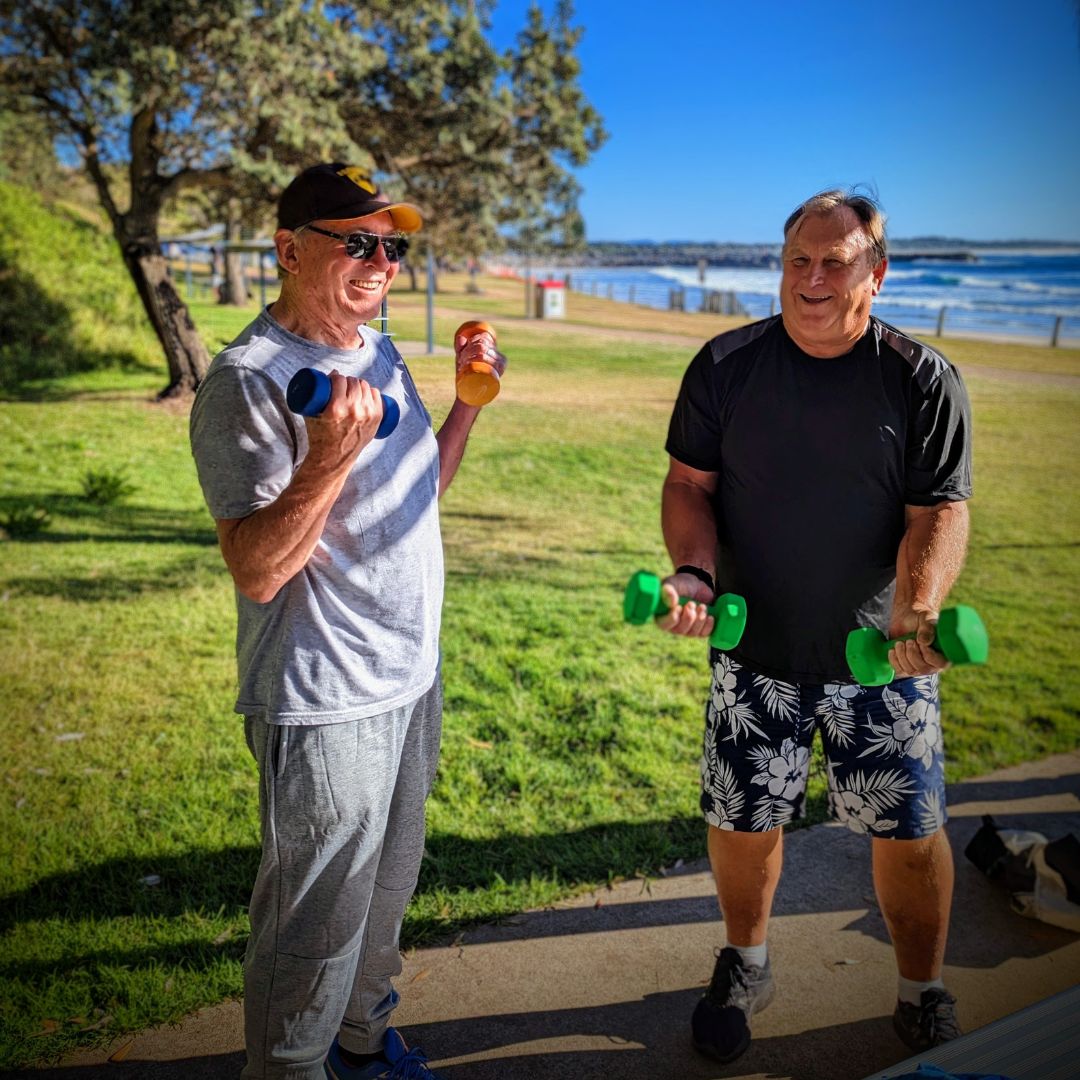
It turned out 22 of my 322 Facebook friends had also had experiences with heart disease. Almost 7 per cent of my group of friends! That’s how common it is.”
“When I began fundraising for the Heart Foundation as part of the Beating Hearts Bootcamp challenge, I was sharing my fundraiser with my Facebook friends. I received a lot of messages and gifts in support of the challenge, but it made me think,” said Rob. “I went through and calculated just how many people inside my group of friends had an experience with heart disease and it blew me away.”
So many people had rung to share their own stories of heart attacks or similar events, one who had even experienced a heart attack during his fundraiser. “What I’ve learnt is that it can happen to otherwise healthy people for any number of reasons. Risk factors like family history or high cholesterol can go unnoticed without a check,” said Rob.
Recovering from a heart attack can be a confronting experience. You not only have to come to terms with what has happened and build trust in your body again, it’s also often difficult to visualise the road ahead. Rob lives every day to the fullest and is a great example for anyone experiencing a heart event, of the rewarding life ahead if you take care of and listen to your body. He is also a great example of the importance of physical activity and social connectedness in taking care of yourself post heart attack.
“If you have the experience of a heart event, make sure that you reach out to any friend or contact who is experiencing the same thing and chat with them about how you got through it and the rehab program you completed.”
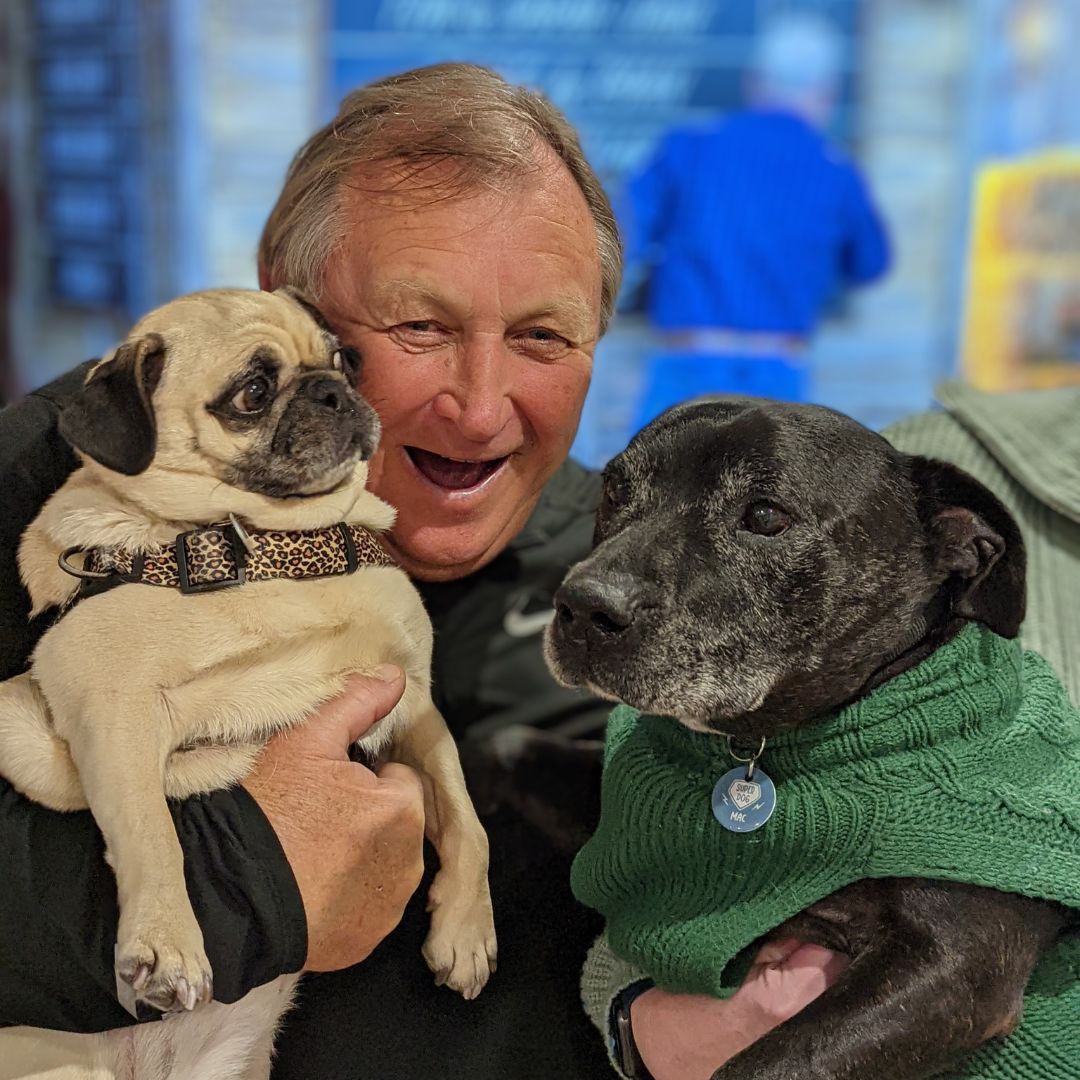
Men’s Health Week kicks off today, June 12, and Rob will be celebrating from a beach in Vanuatu where he and his wife Lynne have relocated for a few months. Always keen to impart some nuggets of wisdom, when we asked him what his message is for other men who may be concerned about their heart health, he had a lot of great advice to offer. The most important? “Listen to your body.”
“If it doesn't feel right, it probably isn't. It's OK for a guy to get medical advice or support. Just because we are male it doesn't mean we are bullet-proof. Be active, especially if you are retired. Find something to do that will get you up and moving. Last time I looked, you don't need to spend a lot of money to get fit by walking. If you find yourself wearing out your shoes, that's probably a good thing because you have been increasing your levels of fitness.”
Follow Rob’s advice and get started with a Personal Walking Plan or search walking groups in your area. There’s no better time to start than today!
You might also be interested in...

Mental health and heart disease
Having a mental health condition can have a negative impact on your heart health and increase your risk of heart disease.
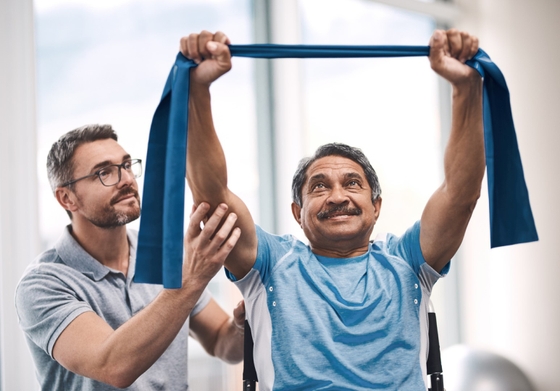
What is cardiac rehab?
Cardiac rehab is proven to keep you out of hospital and reduce your risk of death from heart conditions.
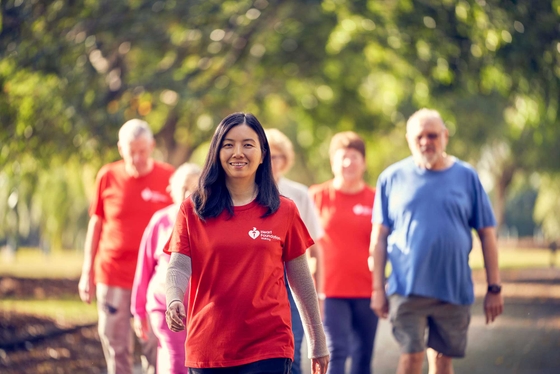
Heart Foundation Walking
The Heart Foundation Walking program is Australia’s largest free walking network and offers people across Australia multiple ways to walk with us including walking groups, personal walking plans and more.
Last updated10 April 2025